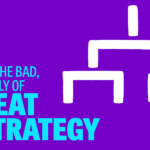The key management skills needed to lead a modern workforce
We’ve all worked for bad managers, and most of us can remember how it made us feel. Some of us have even left a role or the organisation itself as a result of bad management. In fact, studies show that “(…) 75% of employees (have) quit their job to get away from their manager at some point in their career.”
Since managers and leaders can have such an impact on team motivation levels, staff development, and overall job satisfaction, it’s no wonder that organisations such as Google and Zappos have experimented with a flat team structure, without managers. The results? A resounding vote of confidence for keeping team leaders in place. And at Let’s Talk Talent (LTT), we agree that businesses do need managers.
Does this mean we should all learn to live with bad management, as it constitutes an essential part of an organisation’s structure? Of course not. But there is a way to develop people to ensure their management style leads to innovation, inspiration, and increased motivation amongst their employees. And we’re not talking about showing them better processes or training them to use the latest appraisal software.
We believe it’s about fostering the right skills and traits, so managers can deal with any situation using a human-centric approach.
Here are the attributes, behaviours and skills we believe are most important to focus on to provide your people with the management team they deserve.
What makes a good manager?
As organisations, many of us are guilty of promoting people into roles simply because they are good at what they do, or have been there the longest. Whilst this may sound logical, expertise alone does not necessarily make for a good manager. So, what does?
Project Oxygen, Google’s attempt to move towards a flat structure, may have failed in establishing a new corporate way of leading, but it did highlight the traits that make the best managers. And, of course, we’ve added a few of our own for good measure.
10 key traits managers need to lead a modern workforce
Trait 1: Good communication skills
This may seem obvious, but we’d like to define what we mean here. Of course, regularly talking to your team members is a given, but for us, communication is about clarity. It’s about making sure people know what is expected of them, and that they understand the ‘what’ (i.e., what they need to achieve) as well as the ‘how’ (i.e., how they should go about achieving it), so they are clear on what ‘good’ looks like within your organisation.
Trait 2: Honesty
Constructive feedback requires honesty. Which also means sometimes having difficult conversations. Managers need to be able to say things in the moment, not shy away from tough discussions, and clearly establish what should be done to address a situation. But it’s not all about the bad: they should also be able to give praise and recognise good work.
Trait 3: Fostering psychological safety
For innovation to happen, team members need to feel safe and trust that the other members of their team have their back. That goes for their manager, too. This can be achieved by role-modelling the kind of behaviours that generate trust, such as encouraging debate, allowing people to express their opinions and share ideas, and allowing people to make mistakes and learn from them.
We are living in a time of constant change and, some would even say, constant crisis management. Making your people feel safe through this ambiguity is a key skill to develop in managers.
Trait 4: Consistency
Talking of having your team’s back! This shouldn’t be a one-off. Staff need to know their manager will be there for them all of the time in order to allow themselves to grow and stretch in a safe environment. As Jo, MD at LTT, likes to say: “Sometimes you may have to back them up even if you’re not sure they took the right course of action, and then have a word with them later about it.”
Trait 5: Active listening
Listening isn’t a given. It’s a skill that takes time and attention to develop.
Here are a few quick tips:
- Take time to really process what’s been said. Don’t hesitate to say you need to think about something before coming back with answers or solutions.
- Don’t prepare your answer while the other person speaks. Use this time to really absorb the information given.
- Agree the next step, even if that’s just agreeing when you will reconvene to discuss options.
- Summarise what’s been said before leaving the room.
Trait 6: Helping others develop
Managers need to be able to lead their staff and help them contribute to the organisation in a valuable way. This means being aware of their skills gaps, knowing the formal and informal opportunities available, and connecting the two together. Managers should do everything they can to end up with a team of people who are better than them at what they do.
Trait 7: Empathy
This one is a tough one; as Jo often says: “You can’t teach someone to care.” However, empathy is one of the vital skills required of managers. It’s about being a human first, and a manager second. Ultimately, organisations should foster EQ (emotional quotient) in their managers and value it as highly as IQ (intelligence quotient), as both skills are needed.
Trait 8: Vulnerability
Feeling safe to be your whole self at work is an essential part of building the trust and collaboration needed for a team to grow and perform well. But to be safe, team members need to be allowed to be vulnerable, and managers need to show them the way. They should give others permission to be vulnerable by being honest themselves, admitting their own mistakes, and encouraging their team members to be open and honest.
Trait 9: Vision
Team leaders are the ones who set a clear direction and purpose for their team. What does this mean? It means aligning everyone to a common goal, establishing distinct roles and showing staff what needs to be done, as well as how it should be done.
Trait 10: Fair Leadership
Team leaders often need to hold others, and themselves, accountable for their performance, as well as remain unbiased in their decisions at all times. Let’s be honest, failure will happen. But helping others to understand their mistakes and learn from them is what separates the great from the good.
What to do before making someone a manager
Now that we’ve established the main traits of modern managers, it’s clear that it’s not about technical knowledge, or simply ‘knowing how things work around here.’ So, how can you spot managerial potential before promoting someone?
Not many organisations screen for the traits listed above before promoting staff. So, what can you do to ensure you select the people most suited to a team leader role?
STEP 1: Assess candidates’ management skills ahead of time. Screen for empathy, active listening, and good communications skills from the get-go and identify high potential candidates based on those traits.
STEP 2: Support and guide new managers through the transition. Many businesses promote staff, and leave them to the new job without any guidance. Create an onboarding programme for each role, with accompanying resources and training opportunities, such as coaching or mentoring.
STEP 3: Set clear objectives and determine what you expect from your managerial staff so there is no ambiguity.
STEP 4: Actively find new ways to reduce the amount of admin they have to take on, or streamline existing processes so they can focus on their team members first.
STEP 5: Ensure the people you are promoting actually want to be managers. Have you asked them? Some candidates do not particularly wish to lead a team, but many see it as the only development opportunity available for their career progression. Discuss their career plans with them and find out if they have an active desire to help others progress, or if another challenge could be better suited.
STEP 6: Implement regular feedback mechanisms (such as 360-degree feedback) to enable growth and development in your management pool.
And don’t forget that each organisation is different. You may want to create your own map of the Skills, Training, Attributes and Relationships (STAR) needed to be the ideal manager within your business. Have a look at our STAR model to get you started.
Conclusion
It’s true that being a manager can be very difficult. They are often time-poor, buried under tons of admin and red tape, and just struggling with KPIs and performance reports. But, considering the cost implications of having bad managers in your business, it’s worth investing to support your managers where it really counts.
Focus on upskilling your team: not through technical expertise, but by fostering and rewarding the fundamental traits team leaders need to display to ensure you have a talent pool that is energised, motivated, and challenged on a daily basis.
Management is a balancing act between EQ and IQ, and both are required for team members to thrive. And both are needed for leaders to be able to navigate the constant change and instability we are all experiencing at present. As we like to say, it’s about feeling comfortably lost at any given time, and being OK with it.
If you’d like some guidance on how to support and develop your managerial staff, have a look at our Leader of the Pack workshop or our People Management bootcamp. Or download our brand new Leadership and Management checklist.




